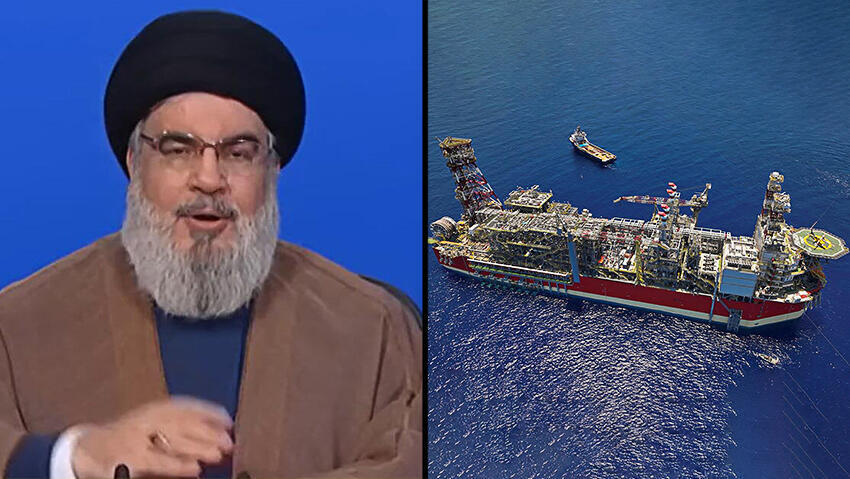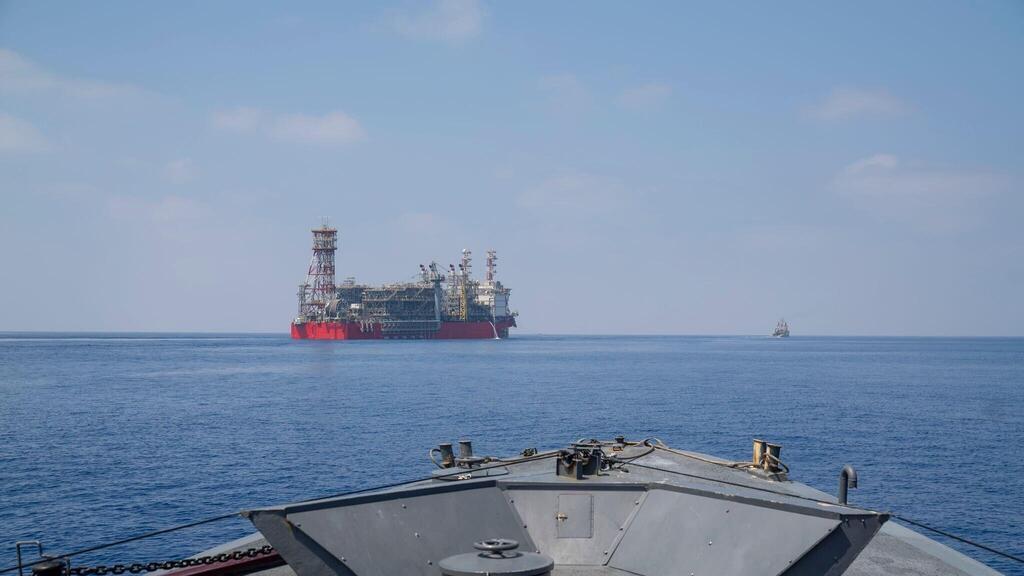Exactly 11 years ago, Israel and the Hamas terror group reached an agreement to release captured IDF soldier Gilad Shalit in a massive prisoner exchange deal.
It was a scandalous deal approved by then-Prime Minister Benjamin Netanyahu. The same Netanyahu who constantly criticizes the current government for negotiating the maritime border deal with Lebanon.
5 View gallery


Benjamin Netanyahu, Karish gas rig and Yair Lapid
(Photo: AFP, Yoav Dudkevtich, Olivier Fitoussi)
The deal was unprecedented in the history of prisoner exchanges for Israel - in terms of numbers (1,027 Palestinian terrorists were freed in exchange for one soldier), and the severity of the crimes committed by the prisoners who were released.
Some 280 of the terrorists who were released had been sentenced to life imprisonment for committing acts of violence against Israelis. Many of them were deported to the Gaza Strip as well as abroad, because they were considered a security threat to Israel at the time of their release.
That deal reshaped Hamas in many aspects. First, it gave the terror group a huge popularity boost, and validated its mantra - the Israeli leadership only understands violence. Secondly, many of the released prisoners who were affiliated with Hamas, later became senior officials in the terror group - including the current Hamas leader in the Gaza Strip Yahya Sinwar.
In addition, the terror group's headquarters were established in the Strip - full of ex-convicts released in the Shalit deal. And they are busy around the clock masterminding and funding terror attacks in the West Bank in order to destabilize the region and incite violence, all while watching it unfold safely from afar. Some of the released terrorists even returned to their homes in the West Bank and carried out terror attacks against Israelis.
One man is responsible for all this - Benjamin Netanyahu. His predecessor, Ehud Olmert, strongly opposed the agreement with Hamas. Many media outlets claimed Netanyahu did it not only to free Shalit, but also to end the Israeli public protest over the affair.
Hamas was demanding the release of 1,000+ prisoners from the moment Shalit was captured. During the five years the soldier spent in captivity, the terror group never changed its demands, while Netanyahu, in the simplest words, caved in. The leader who by his own admission "knows how to negotiate with the Arabs," capitulated to Hamas and gave them exactly what they wanted.
The terror group's celebrations in the West Bank in the days after the deal had been signed were overwhelming, proving how far Israel was willing to go in the negotiation with Hamas, conducted with the help of Egyptian and German mediators.
5 View gallery


Gilad Shalit arrives in Israel after prisoners exchange meets Benjamin Netanyahu
(Photo: GPO)
Was it a one-time slip? Not really. Netanyahu gave in to terror demands before and after the Shalit deal.
Following the events of the Western Wall Tunnel riots in September 1996, in which 17 IDF soldiers and some 100 Palestinians were killed, the Netanyahu-led government and the Palestine Liberation Organization (PLO), led by Yasser Arafat, reached the so-called "Hebron Agreement."
As part of the deal, Israel withdrew from various parts of Hebron, and the area was divided into Area H-1, under Palestinian control, and Area H-2, which remained under Israeli control.
By listing the aforementioned Netanyahu shortfalls, I am not trying to say that the maritime border deal being forged between Lebanon and Israel is good.
According to various publications, it seems Jerusalem made significant compromises to ensure Beirut signs the deal. Some would say Israel "caved in." It is very likely that the fear of a conflict with the Lebanese terror group Hezbollah was part of the decision-making process in Israel. As a result, the Jewish state is expected to lose a considerable amount of money.
But one must also point out the benefits: The deal will stabilize the ties with Lebanon, and will allow the Karish gas rig to operate in a quiet environment to provide a boost to Israel's economy. In addition, it will form a Lebanese dependence on the gas fields and even serve as a faux peace deal - which is a major step.
It is also likely that Hezbollah, which since 2006, has been very cautious about being dragged into an armed confrontation with Israel, will be even more mindful now.
And yet, it is Israel that was forced to compromise again - out of the understanding that economic and security peace is better than dangerous principles.
Lapid is not the first to give in to enemy's demands. Former Israeli governments capitulated to terror groups' demands and made compromises when human life was at stake.
In the maritime deal case, no human life was at state, only money. And yet no one, including Netanyahu's supporters, would want to see the State of Israel enter a military confrontation with Hezbollah, which would result in hundreds, if not thousands, of dead and severely damage the Israeli economy - far worse than any deal.





